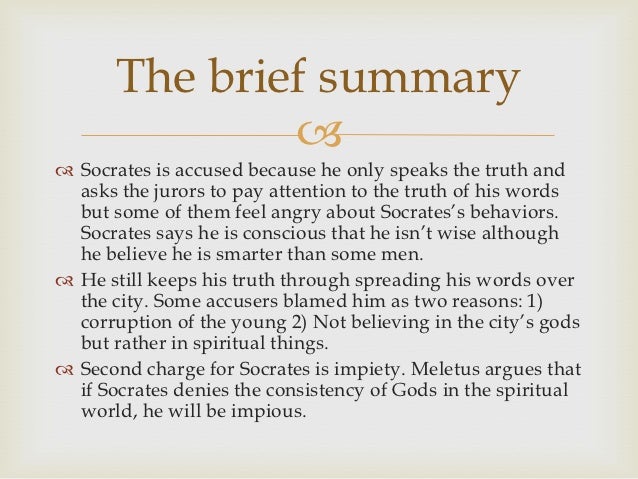

He pushed ahead with an unprecedented building program designed not only to demonstrate the glory that was Greece, but also to ensure full employment and provide opportunities for wealth creation among the non-propertied class. Pericles created the people's courts and used the public treasury to promote the arts. Socrates, the son of a sculptor (or stonecutter) and a midwife, was a young boy when the rise to power of Pericles brought on the dawning of the "Golden Age of Greece." As a young man, Socrates saw a fundamental power shift, as Pericles-perhaps history's first liberal politician-acted on his belief that the masses, and not just property-owning aristocrats, deserved liberty. An examination of that history may not provide final answers, but it does provide important clues. What appears almost certain is that the decisions to prosecute and ultimately convict Socrates had a lot to do with the turbulent history of Athens in the several years preceding his trial. Historians suspect that Plato and Xenophon, intent on showing their master in a favorable light, failed to present in their accounts the most damning evidence against Socrates. What could Socrates have said or done that prompted a jury of 500 Athenians to send him to his death just a few years before he would have died naturally?įinding an answer to the mystery of the trial of Socrates is complicated by the fact that the two surviving accounts of the defense (or apology) of Socrates both come from disciples of his, Plato and Xenophon. Why, in a society enjoying more freedom and democracy than any the world had ever seen, would a 70-year-old philosopher be put to death for what he was teaching? The puzzle is all the greater because Socrates had taught-without molestation-all of his adult life.

The trial and execution of Socrates in Athens in 399 B.C.E.


 0 kommentar(er)
0 kommentar(er)
